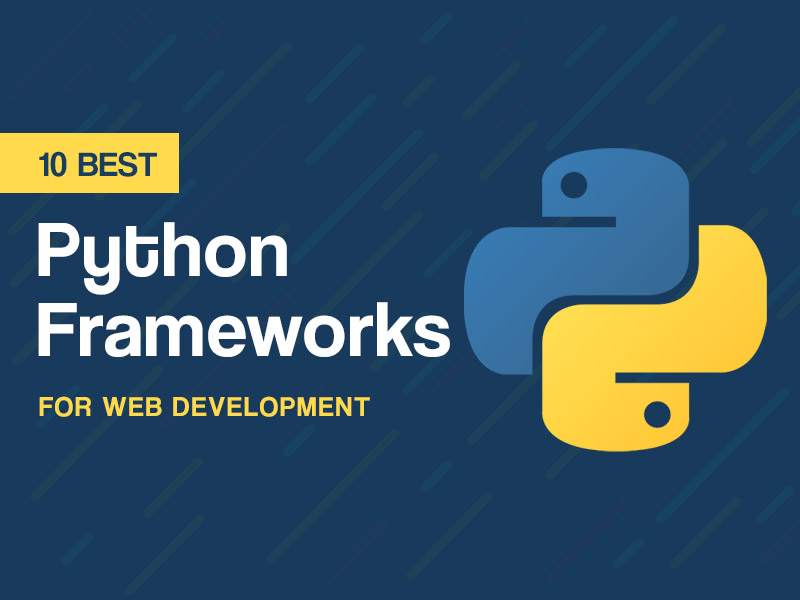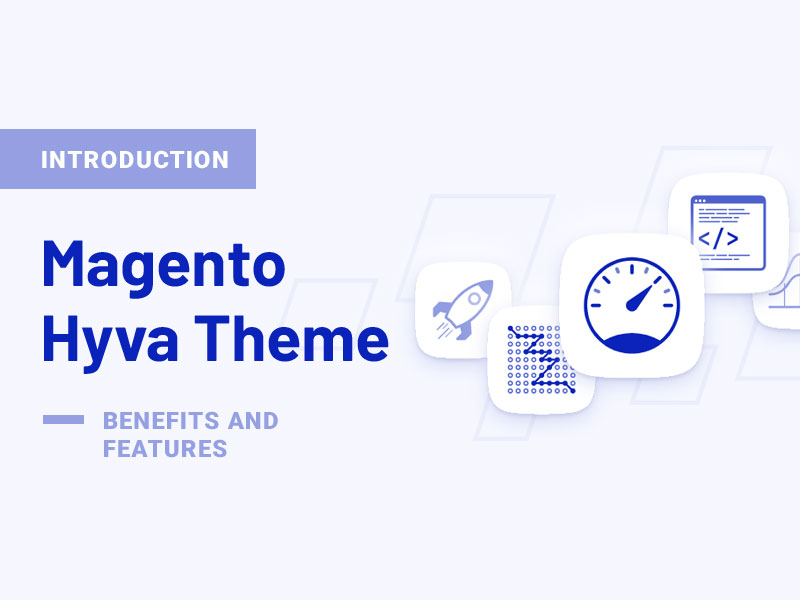Python has proven its development capabilities repeatedly in the world of software development, and the same goes for web development. When we think about Python, only two things come to mind, the simplicity of the development language and how we can do almost anything we want with it.
If you are looking for Python as a choice for your web development project, you will see how anything can be achieved with it. To speed up the process even further, Python offers various capable web development frameworks, which eases the entire process and streamlines it.
There are Three Types of Python Frameworks:
- 1. Full-Stack Frameworks
- 2. Microframeworks
- 3. Asynchronous Frameworks
Each type of framework serves its own purpose and excels in either component of a web development project. You should choose the one befitting your requirements, as they are all based on Python, and except for differences, they are all the same at the core.
Following are the Top 10 Python Frameworks for Web Development
Django
Django comes on top as the most popular Python framework across all web-related development requirements. Django is a full-stack Python framework; it can fulfill all your web development requirements and even more if you choose this framework.
If you want to develop your website application faster and without hassles, Django is the framework to choose from all other Python web frameworks. It provides a simple development interface along with protecting your application from common security threats.
Flask
Flask is focused on simplicity and getting things done the way they should be. Flask stands out as the most popular microframework on offer. When it comes to creating scalable web applications, none can compare to this Python web development framework.
Using Flask, developers can create efficient web applications with minimal effort and utmost ease. Apart from scalability and ease of use, the main offering is the library of third-party resources developed by the community, which can come in really handy when developing web applications.
CherryPy
CherryPy is a quick and agile framework for developing web applications in Python. Even though the framework is less popular than Django and Flask, it still has a following of its own, making it a top choice among developers looking for Python frameworks.
This microframework provides tools out-of-the-box for authentication, caching, encoding, static content, and more, making it extremely easy to implement these complicated features directly to web applications. On top of all of this, CherryPy is light and supports multi-threading.
Tornado
If your main concern is scalability, it doesn’t get better than Tornado when it comes to scalable web development through Python. The framework is asynchronous and can support thousands of users at any instance.
Tornado offers implementation of 3rd party authorization and authentication while offering a built-in HTTP server. Some of its key features are real-time service offerings, user authentication support, complete localization support, and web templating options, which makes Tornado ideal for web development in Python.
Sanic
Sanic is a framework dependent on uvloop and is designed for providing fast HTTPS response handling. It is an asynchronous Python framework and can be called the most popular when it comes to asynchronous type frameworks. Sanic is named after Sonic the Hedgehog, denoting how fast it is.
The framework is comparatively newer against Django and other Python frameworks and has still made a mark on the Python developer community. Sanic offers various types of logging, handlers, views, multi-plugin support, blueprint support, etc., making it ideal for web development.
Pyramid
If you are looking for a framework that offers an all-in-one solution, be it simple projects or complex ones, Pyramid is your top option. It is loved by experienced and novice developers as the full-stack Python framework offers capabilities to act as a microframework.
Pyramid isn’t highly popular like the other Python frameworks in the list but is deemed highly capable of web development by some of the top Python developers. It offers extensibility, built-in templating, security features, database handling, built-in support for small and full-scale apps, predicates, renderers, etc.
Falcon
Flacon aims at offering faster web development in minimal effort while providing all the benefits of microframework. Falcon is used by social media giant LinkedIn, which is the main reason for its popularity and gaining pace in the Python community.
The framework features don’t repeat yourself (DRY) application processing, ease of access, idiomatic HTTP error response, application speed enhancements, and REST-inspired resources. Combined with its ease of use, Flacon is a top choice for many Python web developers looking forward to microframeworks for web development.
Bottle
Bottle has zero dependencies except for the standard Python library, making it highly dependable and robust. It is a web server gateway interface microframework and is usable by even inexperienced Python developers who are new to Python developers.
The microframework is loved by the developers looking forwards to a robust web development framework. Its offerings include support for database plugins, a built-in HTTP development server, a built-in template engine, support for WSGI capable HTTP servers, function-call mapping, etc.
TurboGears
If you were to find a framework as capable as TurboGears when it comes to Python web development, it would have to be Django. Much like the most popular framework offering in Python, TurboGears too is a full-stack web development framework.
It offers a smooth web development process and was designed to solve high-scalability issues which are common with web development. It offers multiple-database support, accessible command-line, MVC-style architecture, JavaScript integration, and PasteScript templates.
Web2Py
Web2Py was built with two things in mind, fast web development capabilities and high scalability. It is a full-stack framework, offering end-to-end web development capability to Python web developers. Even though it isn’t topping the popularity chart, the community that uses it stays loyal to it when it comes to web development through Python.
Web2Py follows the MVC design architecture and can be used on both Python and Python/Java web hostings. It includes a multi-threaded SSL server and offers backward compatibility and support for multiple relational databases.
Planning to Get Started for Your Web Development Project?
We assume the list made it possible to guide you to the Python web development offerings. The choice now falls on your shoulder for which one seems the best for your application, or you can simply send Matellio your requirements to make a choice for you. Based on the project’s complexity, they will be able to make an informed decision for you, given their 21 years of web development experience. When you hire Python developers from Matellio, you get to choose everything, from the framework of your choice to the development path you require.







